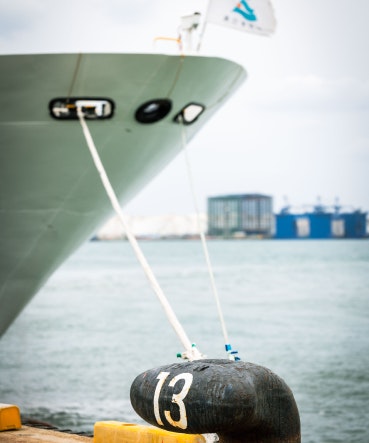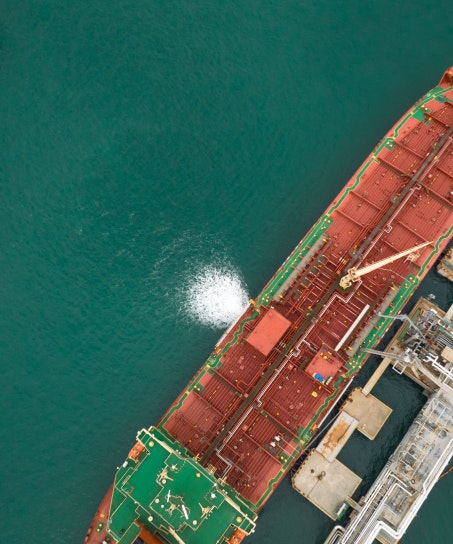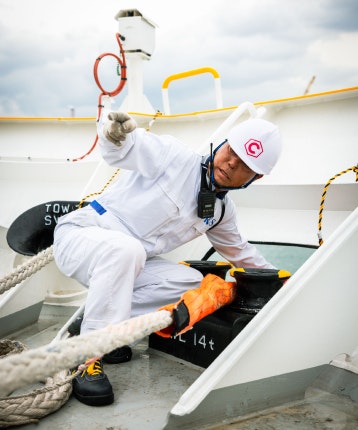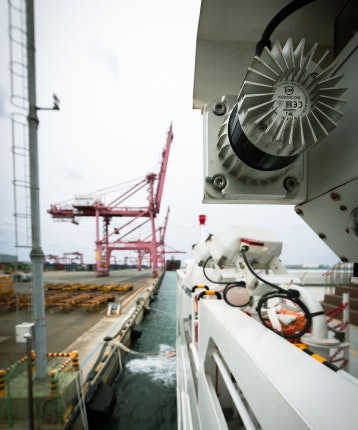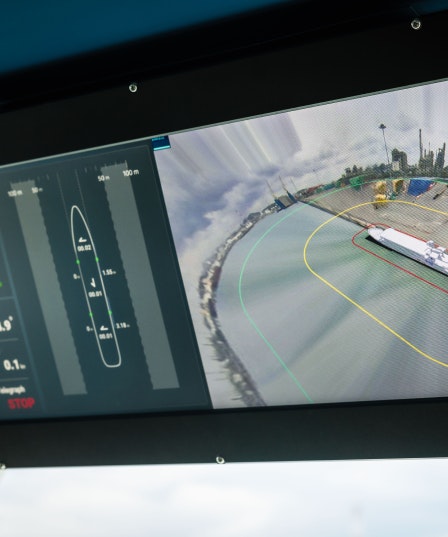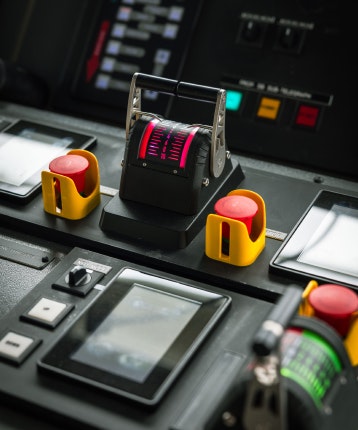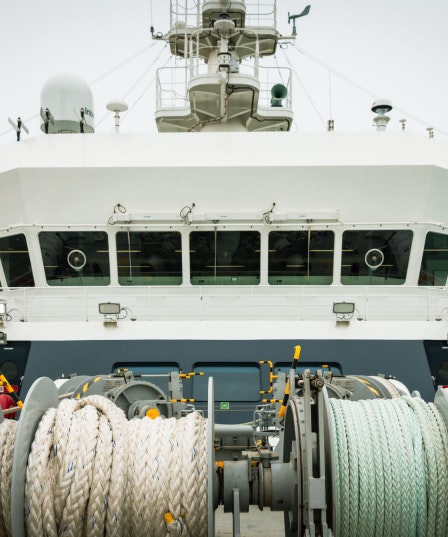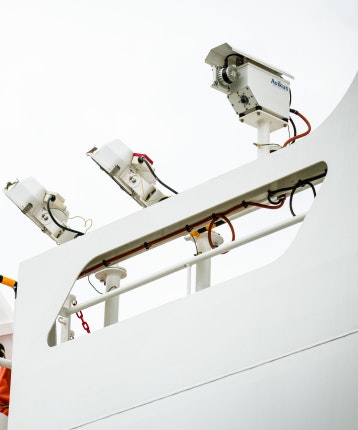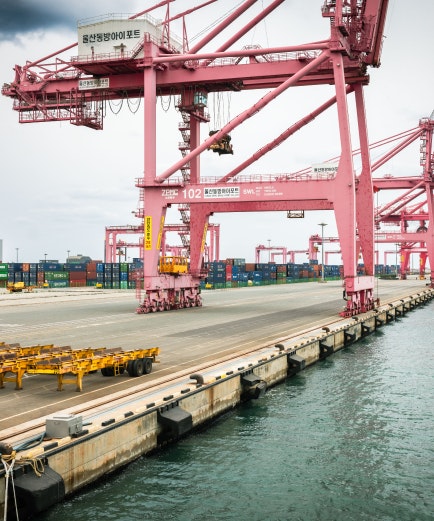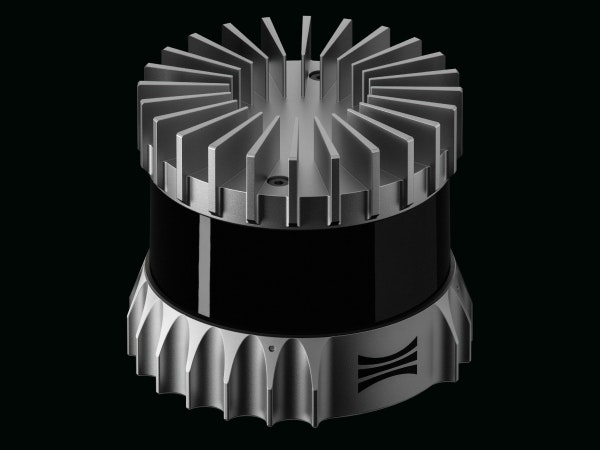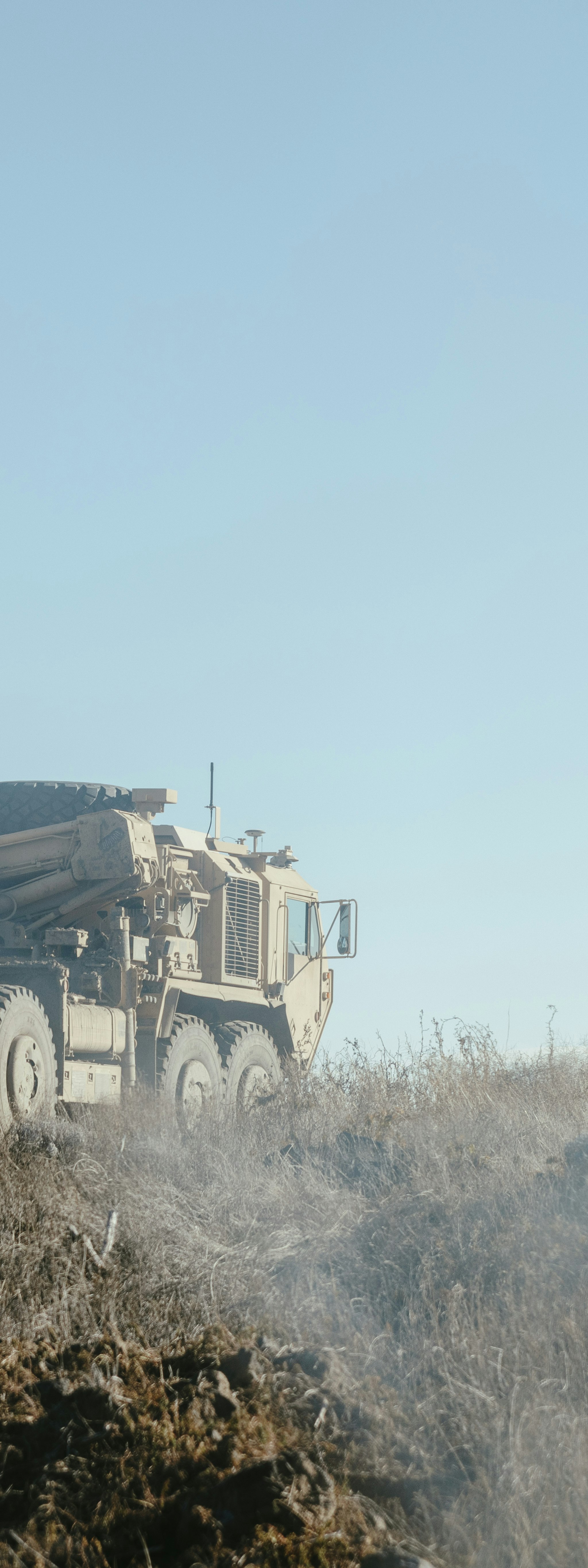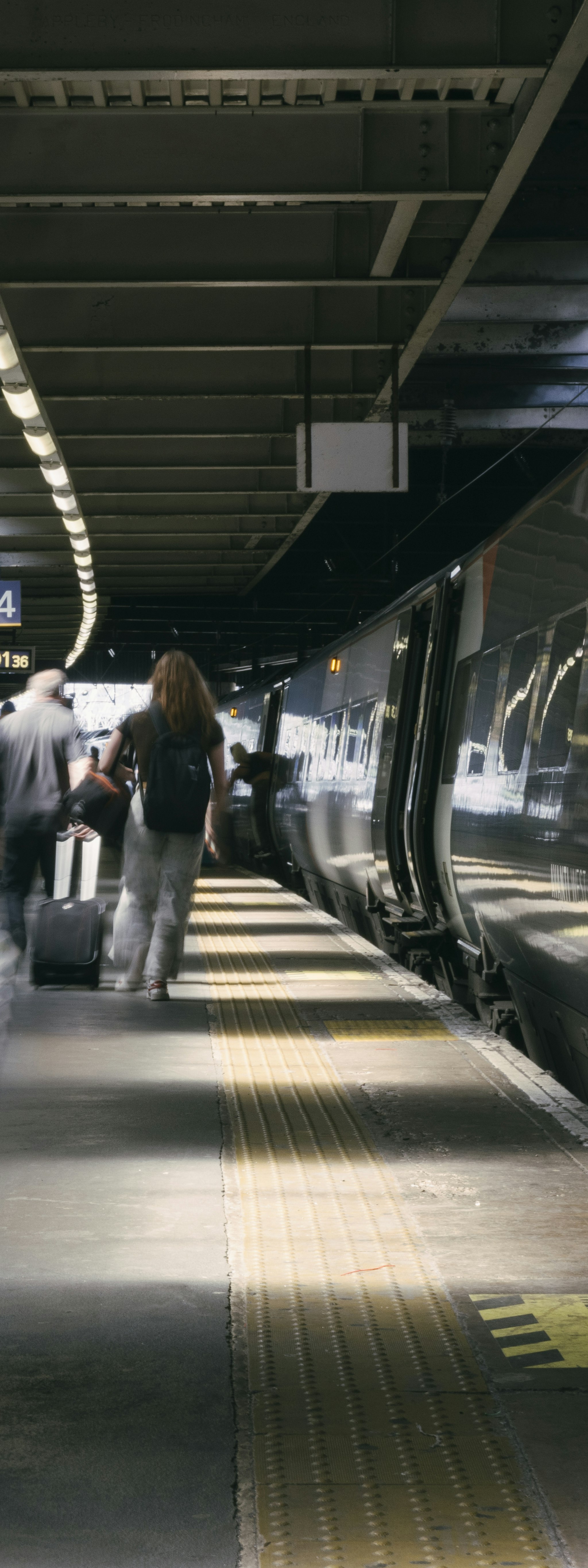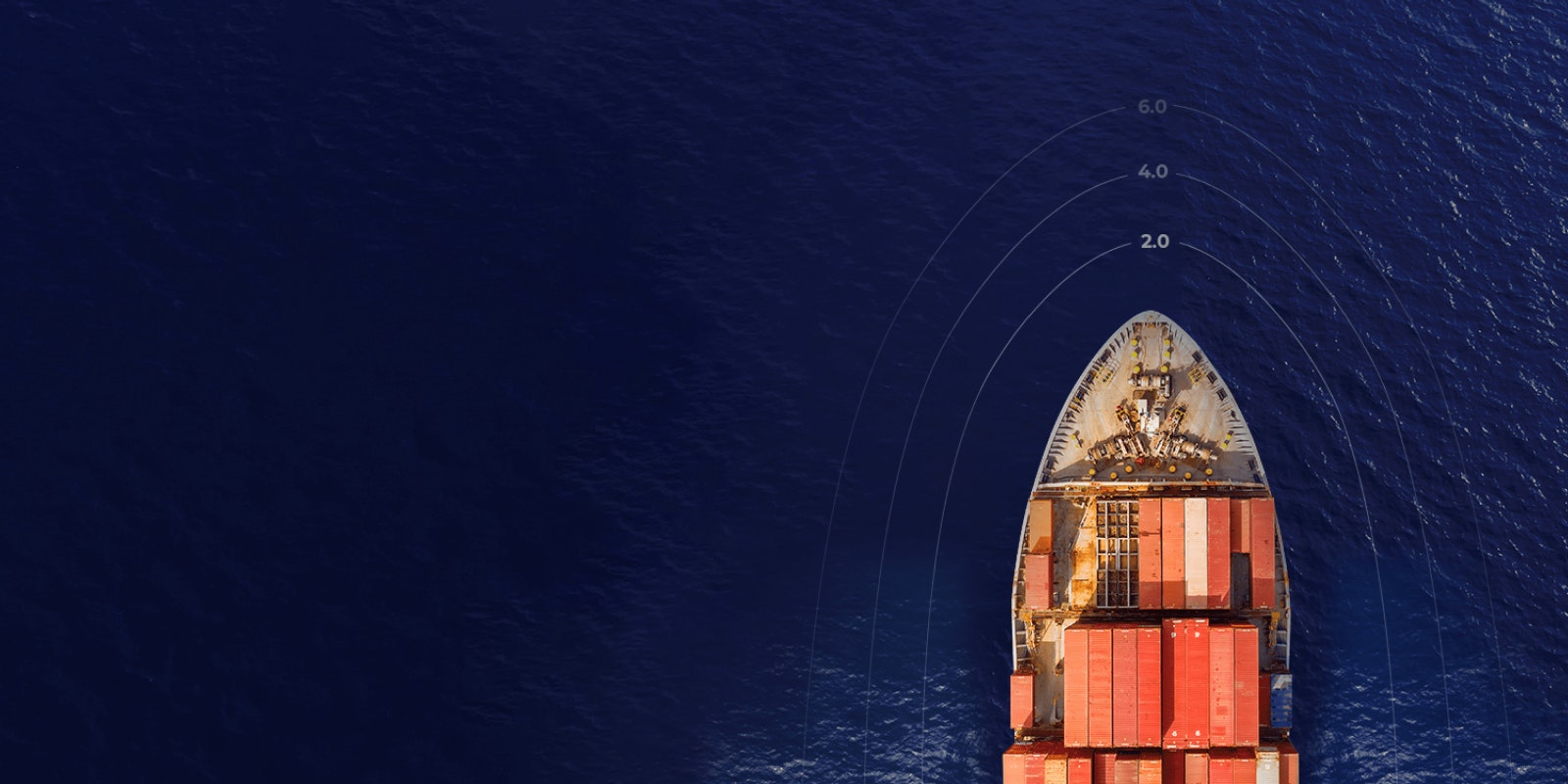
Avikus
Avikus deployed the Ouster OS sensors due to the optimal combination of range and field of view that allows them to be positioned at the elevated points of a commercial vessel while still achieving the necessary resolution for detecting and avoiding obstacles during navigation within port environments.
90% of logistics happen in the world’s oceans, and that is where we can impact the lives of people on this globe.
The profound impact that Avikus, HD Hyundai’s foray into autonomous intelligent navigation, is set to make on the global shipping industry cannot be overstated. With more than 100,000 commercial ships operating each year, Avikus' capability to cut fuel consumption and carbon emissions on transoceanic voyages by 7% and 5% respectively promises substantial cost savings and sustainability gains for operators across the globe. Given that 90% of all global shipping logistics move through the ocean, this advancement is poised to affect nearly everyone.
Beyond the evident environmental and financial benefits, Avikus' affect on fast and secure operations within ports represent a crucial driving force behind the adoption of their 3D lidar-based navigation and ADAS solutions.
The Challenge
Operating ships carrying 22,000 cargo containers, from birthing to docking, presents an inherently difficult task. Captains must maneuver with finesse, delicacy, and precision to ensure the vessel is properly positioned. Any tool that can assist them is highly valued, and the intelligent navigation systems, HiNas and NeuBoat, developed by Avikus, now serve as indispensable integrations. With leisure boating, Avikus is pioneering an ADAS system that will introduce many features familiar to land vehicles but previously impossible on water. Here, leveraging the groundwork laid by HD Hyundai, Avikus can harness and adapt a wealth of data, expediting progress toward their goals. The system now offers automated docking and undocking, along with autonomous navigation and obstacle avoidance.
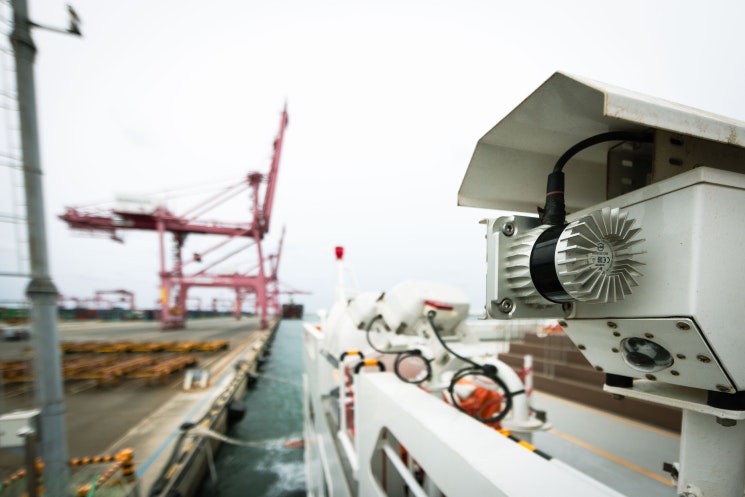
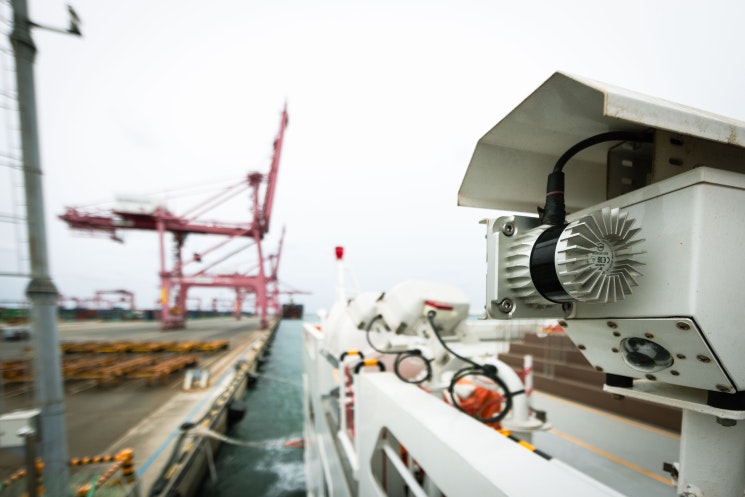
"We aim to be installed on 50% of the 2,000 commercial ships built annually and 10% of all new leisure boats by 2030."
The Solution
Avikus settled on the Ouster OS1 due to its optimal combination of range and field of view that allows it to be positioned at the elevated points of a commercial vessel while still achieving the necessary resolution for detecting and avoiding obstacles during navigation within port environments. Furthermore, rigorous testing confirmed the sensor's durability for operation in the demanding maritime conditions. Ships embarking on transoceanic voyages are subject to extreme temperature fluctuations and weather conditions, in addition to encountering challenges unique to the sea – large waves, constant motion, oceanic storms, and exposure to saltwater, for example.
Ouster's sensors are engineered to function within a temperature range of -40 to +60°C, boasting certifications of IP68 and IP69K for ingress protection. They have been rigorously tested for 10,000 hours of continuous operation and offer superior visibility in rainy and snowy conditions compared to other sensing methods.
The REV7 OS1 boasts a 90m range at 10% reflectivity and a maximum range of 200m with a 45° FoV. With 128 channels of resolution and 5.2m points per second, it emerges as the optimal solution for navigating port environments, where obstacle detection and an unobstructed view of the surroundings are paramount.
Experts in shipbuilding with over a 50 year history at HD Hyundai, Avikus understands that the right selection of components is essential to the overall performance of a vessel. For Avikus, it was essential to select a sensor that would not only provide the quality and robustness they required, but also to work with a company that could reliably deliver the support necessary to grow their operations. Ouster’s digital architecture and focus on manufacturability means that sensors produced in both the San Francisco facilities and by Ouster’s manufacturing partner, Benchmark Electronics, in Thailand are production ready. Ouster is uniquely positioned to provide products on demand with capacities in the thousands/month, a necessity as companies need to quickly scale.

Avikus will be the first to develop a fourth-stage, fully autonomous navigation solution for the shipping industry.
We have demonstrated that on transoceanic voyages we can reduce fuel consumption of commercial shipping vessels by 7% and carbon emissions by 4%. With over 100,000 ships in operation every year, this has the potential to make a huge impact.
Results
Avikus' HiNas and NeuBoat solutions for shipping and boating yield remarkable outcomes. Beyond optimized route planning, automated docking and undocking, and autonomous obstacle avoidance, Avikus approximates that, in conjunction with the 7% fuel savings and 5% reduction in carbon emissions, their systems prevent nearly 80% of accidents caused by human error in shipping environments. Such incidents can be financially costly as well as generally unsafe. Additionally, thanks to Ouster’s lidars, captains now enjoy navigation tools that encompass a top-down, 360° birds-eye view of their entire vessel and its surroundings in real time – a capability previously unattainable.
By 2023, Avikus has already secured 350 orders for their new system installations and aim to equip 50% of the 2000 commercial ships and 10% of all leisure boats constructed annually by 2030.


